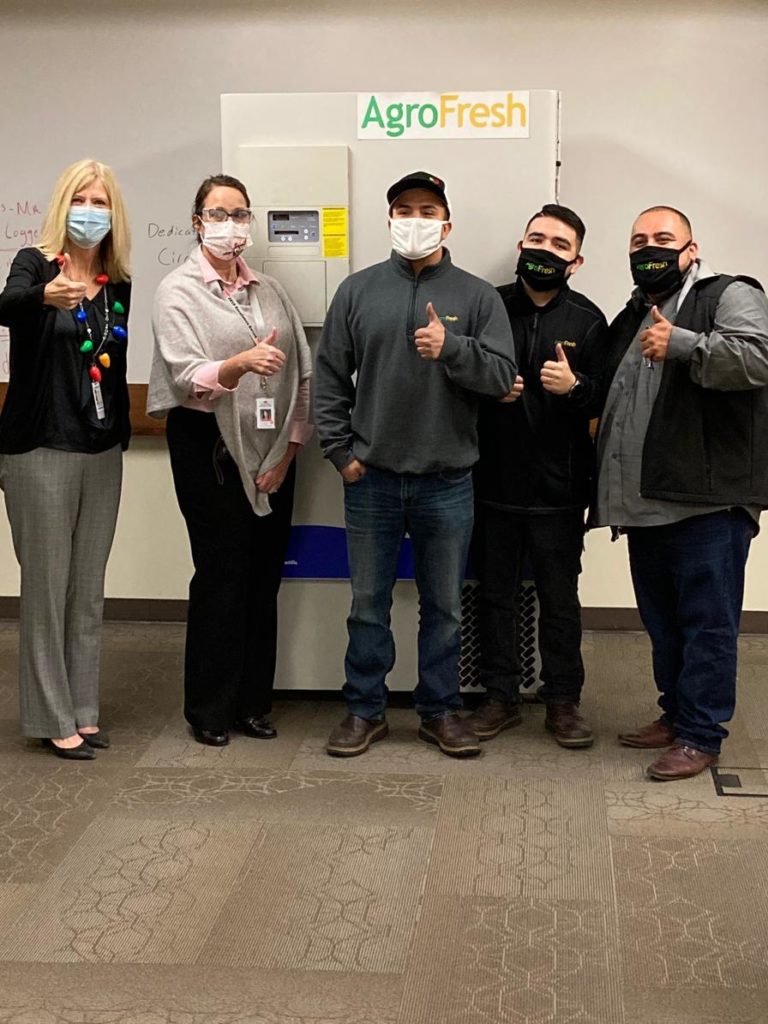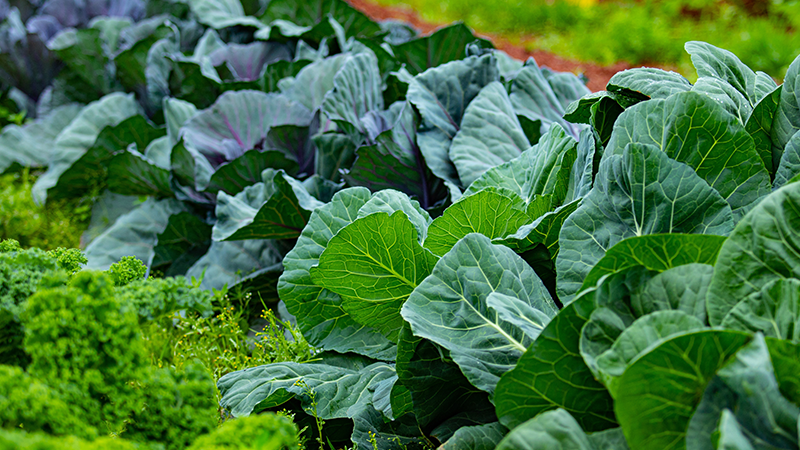Farmworker Health Clinic Gets Precious Gift In Battling COVID-19
Like most everyone else, the folks at AgroFresh Solutions, Inc. have been following the news about the new vaccines for COVID-19. Back in mid-December, Julio Cruz, AgroFresh Regional Operations Manager in Yakima, WA, says they were talking about how the first vaccine from Pfizer would require extreme cold storage, and came to a consensus: “Wouldn’t it be cool if we could do something?”
AgroFresh, which is an innovator in extending the shelflife of fresh produce with such postharvest technology as SmartFresh, has a research laboratory/regional service center in Yakima, and the employees knew they had three ultracold freezers that could be used.
“Someone said it would be more than cool,” says Cruz, “so we did research and then started calling around.”

Those involved in the timely gift of the usage of ultra-cold freezers to store precious COVID-19 vaccinations include (from left) Teresa Rice and Lori Kelley of the Yakima Valley Farm Workers Clinic, and from AgroFresh Solutions, Emilio Gonzalez, Jonathan Perez, and Julio Cruz. (Photo: AgroFresh)
What they discovered almost immediately was that the Yakima Valley Farm Workers Clinic, which provides comprehensive medical and other services for more than 166,000 people, was desperately in need of such equipment. AgroFresh was already more than familiar with the clinic. In fact, the clinic has been providing COVID-19 testing for their employees, says Cruz, which made the employees want to help even more.
“We pushed (the request) up the chain to corporate and they said, ‘Go ahead, let’s make this happen.’ A phone call was made, and they were overjoyed,” Cruz says.
The folks at the clinic were so delighted because, by using the coolers, they would be much more able to better serve their clients, says the clinic’s Gina Adrien, Senior Vice President of External Affairs. They had developed a vaccination plan, but they weren’t happy about it because the shortage of ultra-cold freezers certainly isn’t unique to Yakima. Without them, their plan required the use of dry ice – lots and lots of it.
“It requires almost constant application of dry ice, which requires staff time when we could be administering vaccines, doing contact tracing – it’s a labor-intensive process,” she says. “We had a plan – it just wasn’t the gold standard. This is the gold standard.”
Adrien says she doesn’t know if the freezers will necessarily speed the issuance of the vaccine when it becomes available for their farmworker clients, but it will definitely provide some welcome reliability.
“It will create certainty in a very uncertain process,” she says. “As it stands, only hospitals have these in Yakima County.”
The ultra-cold freezers, which Cruz says can maintain temperatures of between -97°F and -112°F, are not used in many industrial processes, and, as such, were already uncommon. Now, with the Pfizer vaccine rolling out, they are in high demand. Because of that, Adrien is especially thankful.
“We’re health care professionals, but no one has experienced anything like this before. We’ve not done this before in anyone living’s lifetime. It’s been hard, and it’s been hard for a long time,” she says. “These cold freezers are an important piece to the puzzle ― such an unexpected and welcome blessing. So to get a phone call offering this aid, this valuable, valuable aid, is wonderful. These freezers, man, they’re really hard to come by.”
The clinic, which serves nearly 20 communities in Washington and Oregon, will use the freezers in their Toppenish and Grandview locations, in addition to Yakima. That will cover the key parts of the Yakima Valley, says Adrien, which has suffered higher rates of COVID-19 than most other parts of the state.
“It’s been hard, hard on everybody, but this is disproportionately affecting our black and brown neighbors, and these are my neighbors here in the Yakima Valley. These are folks who live paycheck to paycheck doing hard work,” she says. “(The freezers) are a boon to our health care system, but they are also a boon to our tired, tired souls. They really are beacons of hope for us, and we’re so, so grateful.”
Cruz says he and his co-workers were just happy to help meet such a critical need. Many volunteered to help make the deliveries, coming in on their days off to help out.
“It was a great experience. We’re happy to be able to do our part, and we’re thrilled to work for a company like AgroFresh that encourages people to do things like this,” he says. “We’re just happy AgroFresh could do its part and help the community in this time of need.”









